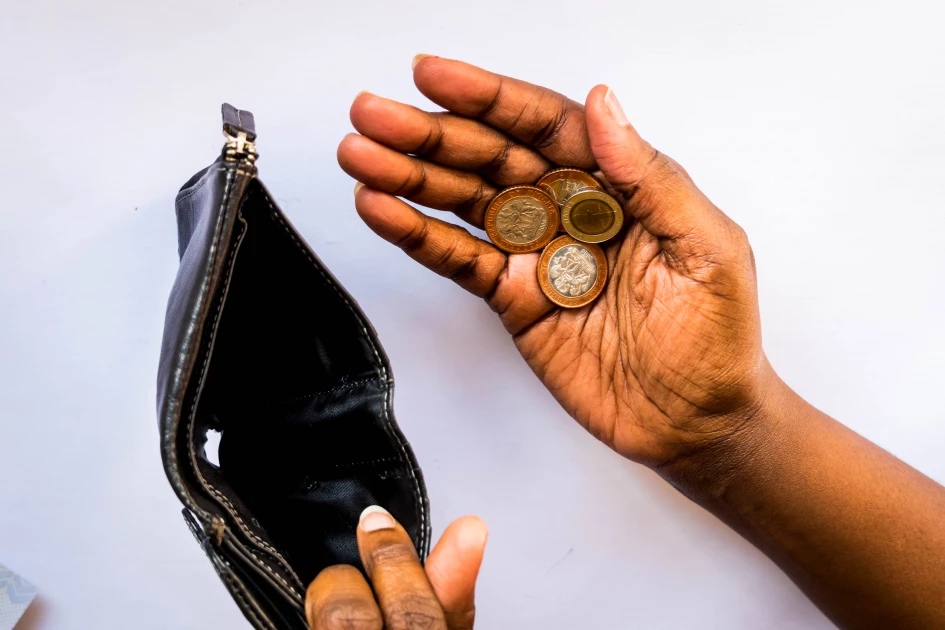Wananchi Opinion: The economy is ‘growing’, but why are our pockets empty

Kenya has recorded consistent economic growth in recent years, with the government and international financial institutions often reporting positive figures.
According to the World Bank and the Kenya National Bureau of Statistics (KNBS), GDP has been growing steadily, driven by sectors like agriculture, ICT, construction, and services.
On paper, this paints a picture of a flourishing economy. Yet, for the average Kenyan, daily life feels increasingly expensive, jobs are hard to come by, and income often doesn’t stretch far enough.
This growing disconnect between economic growth and individual prosperity raises important questions: why is the economy growing, but the pockets of Kenyans are shrinking?
The first factor is the structure of Kenya’s economic growth. While GDP growth is a useful economic indicator, it does not capture how wealth is distributed.
Much of Kenya’s economic expansion is concentrated in a few sectors that do not create broad-based employment. For example, while the ICT sector has expanded rapidly, it remains a small employer compared to agriculture or the informal sector.
Additionally, large infrastructure projects contribute significantly to GDP but offer short-term, low-paying jobs with little long-term benefit for the average citizen.
As a result, while the economy appears to grow, the gains are not evenly spread across the population.
Second, the cost of living in Kenya has risen sharply, eroding the purchasing power of ordinary citizens.
Essentials like food, fuel, electricity, and transport have become significantly more expensive.
Inflation, particularly in food prices, has outpaced wage growth. This means that even where salaries remain constant, their real value is shrinking.
The weakening of the Kenyan shilling against major currencies like the US dollar has worsened the situation, making imported goods and inputs more expensive — costs that are ultimately passed on to consumers.
Public debt is another major issue. Kenya’s national debt has ballooned to over Ksh 10 trillion, forcing the government to implement aggressive tax measures to raise revenue.
Ordinary citizens now face multiple taxes, including fuel VAT, the housing levy, excise duties, and digital service taxes.
Many Kenyans report that their net income has dropped due to these deductions.
At the same time, essential services like healthcare and education remain underfunded, so citizens end up paying more out of pocket, increasing their financial strain.
Unemployment and underemployment, especially among the youth, also contribute to the shrinking of pockets.
Despite graduating in large numbers from universities and colleges, many young Kenyans struggle to find decent jobs.
The informal sector — where the majority work — offers unstable income and minimal job security.
Even those who are employed often find that salaries are low and fail to keep up with the high cost of living. This results in many Kenyans living paycheck to paycheck, with little or no savings.
Corruption and mismanagement of public resources also play a key role. Billions of shillings are lost each year through graft, depriving the country of funds that could otherwise improve infrastructure, health, and education systems.
When public funds are misappropriated, the burden shifts to the taxpayer, who receives little benefit in return. This contributes to widespread public frustration, as citizens feel they are paying more but getting less.
Lastly, climate change and environmental challenges have negatively impacted agriculture, which employs a large portion of Kenya’s population.
Recurring droughts, floods, and unpredictable weather patterns reduce crop yields and disrupt food supply chains. Farmers struggle to make profits, food prices rise, and urban consumers feel the pinch.
With agriculture under pressure, rural incomes drop, contributing to national inequality and economic hardship.
In a nutshell, Kenya’s growing economy is not necessarily translating to improved living standards for most citizens. While macroeconomic indicators tell one story, the lived experiences of Kenyans tell another.
The shrinking of people’s pockets is due to a combination of inflation, unemployment, high taxation, corruption, and poor wealth distribution. For economic growth to be meaningful, it must be inclusive.
The government must focus on policies that reduce inequality, promote job creation, lower the cost of living, and ensure transparency and accountability in public spending. Only then can economic growth translate into tangible benefits for every Kenyan.
Mr. Abol Kepha Kings is a personal finance advisor and a former banker
Want to send us a story? SMS to 25170 or WhatsApp 0743570000 or Submit on Citizen Digital or email wananchi@royalmedia.co.ke
Comments
No comments yet.


Leave a Comment